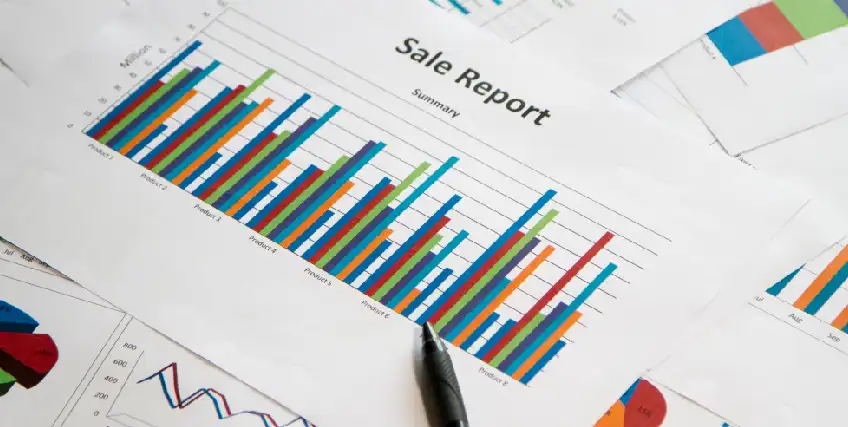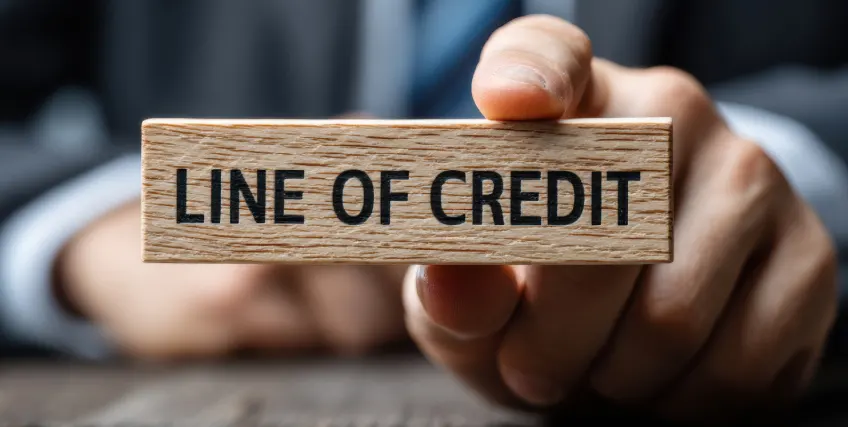Understanding Business Credit Scores
March 11, 2025 | Last Updated on: March 11, 2025

Much like the credit scores used for applying for a new car loan or mortgage, business credit scores help companies and their creditors determine how likely it is that a business will repay its debts.
The higher the score, the more likely it is that a business will gain credit approval for lending options. This can include a loan for a new vehicle, opening a business credit card, or being approved for a business line of credit.
Building a business credit score takes time and effort, but can be a great resource when your company needs business credit loans. Here’s what you need to know.
Business vs. Personal Credit Scores
While personal credit scores range from 300 to 850, business credit scores usually range from 0-100. Like personal scores, a business credit score isn’t the only factor used when making a credit determination, but it plays a large role in a creditor’s decision to approve or decline a credit application.
Major business credit bureaus like Dun & Bradstreet, Experian, and Equifax compile business credit report data, each using slightly different criteria. They consider factors like the business’s payment history, credit usage, company size, industry risk, and public records such as liens or bankruptcies. Business credit scores are often tied to the company’s EIN (Employer Identification Number) rather than a Social Security number.
The last major difference between business and personal scores is privacy. Consumers and their approved creditors can view scores, but no one else can randomly view the credit information of another individual. With businesses, all company credit information is publicly available, and anyone can view a credit report for a business as long as it has been paid for.
Why are Business Credit Scores Important?
Monitoring a business credit score is vital to the company’s financial success for a lot of reasons:
- Financing – Banks and lenders are far more likely to approve loans and other financial products to businesses whose credit scores reflect a solid history of debt repayment. These types of clients are looked at as low risk. Once the loans are approved, there may be fewer fees and lower interest rates, saving money over the life of the loan. Business credit scores that indicate a solid repayment history can also help unlock the door to higher-dollar loan amounts and credit opportunities
- Cost – Similar to loan pricing above, having a solid business credit score and excellent creditworthiness can significantly lower the cost of borrowing.
- Personal Credit History – Some business finance agreements will consider the credit profile and personal finances of the business owner in addition to the business credit score. This may or may not involve a personal guarantee from the small business owner, through which they are individually responsible for repayment if the business can’t meet its debts.
How Business Credit Scores Are Calculated
Since there is no universal standard for calculating business credit scores from credit reporting agencies, we will look at the most common methods used by the three major business reporting bureaus.
Equifax
Equifax uses a three-pronged approach to determine a business credit score:
- Payment Index – A business credit score ranges from 0-100, and represents information from creditors and business vendors that have interacted with the company.
- Business Credit Risk Score – Scored 101-992 and measures the likelihood that a business will become delinquent on its payments. Some of the factors used include company size, available credit, ages of credit accounts, and charged off or delinquent accounts.
- Business Failure Score – Scored 1,000 to 1,610 and gauges the likelihood that a business will close in 12 months. Lower scores indicate a higher probability of closure.
Experian
Experian uses its proprietary Credit Score report, which is a comprehensive measure of a business’s financial health. The score includes payment trends, public records, and account histories. The Experian score is different than the other two because it considers much more than just payment histories. Legal filings, company background information, and collections agency filings, among other things, all get factored in.
Just like with personal credit scores, Experian business credit scores consider outstanding loan balances, and whether or not the business has any liens, judgments, or bankruptcies on its record.
Dun & Bradstreet
Dun & Bradstreet uses a metric called a Paydex score, which ranges from 0-100. The number is calculated by using payment data that is either reported to data collection companies or directly to Dun & Bradstreet itself. The company also uses:
- Commercial Credit Score – Scored 101-670 and predicts how likely the business is to have delinquent payments.
- Financial Stress Score – Scored 1,001-1,610 and measures the probability of the business’ failure over the coming twelve months.
Businesses must opt-in to the Dun & Bradstreet scoring system by filing for a DUNS number through the company’s website.
Just like the three big consumer bureaus, TransUnion, Equifax, and Experian, the three major business credit bureaus gauge scores slightly differently but indicate much of the same information.
Final Thoughts on Business Credit Scores
Business credit scores may sound more complicated than personal credit reports, but the concept of monitoring the score and staying current on payments and accounts is the same. Additionally, having a good business credit score opens up potential borrowing opportunities like a small business loan to grow your business.
The more you can maintain financial stability within your business by making on-time payments to your vendors, the more your business’s credit will hopefully go up, and give you further flexibility to borrow as you need.
FAQs about Business Credit Scores
What is a good credit score for a business?
A good business credit score typically ranges from 75 to 100 on the Dun & Bradstreet PAYDEX scale or 80 and above on the Experian Intelliscore Plus. These scores indicate the business is financially reliable and likely to meet its obligations on time, which can enhance access to funding and favorable terms.
How is your business credit score used?
Your business credit score is used by lenders, suppliers, and partners to evaluate your company’s financial health, creditworthiness, and risk of default. It influences decisions such as loan approvals, credit limits, interest rates, and terms for contracts or partnerships.
What affects your business credit score?
Factors that affect your business credit score include payment history, credit utilization, length of credit history, and public records like bankruptcies or liens. Other considerations may include the company’s size, industry risk, and the number of trade lines or accounts in good standing.
How do you build business credit?
Maintaining a positive payment history with vendors, use business credit cards responsibly, and regularly monitoring your credit reports can lead you to have the best credit score possible.




